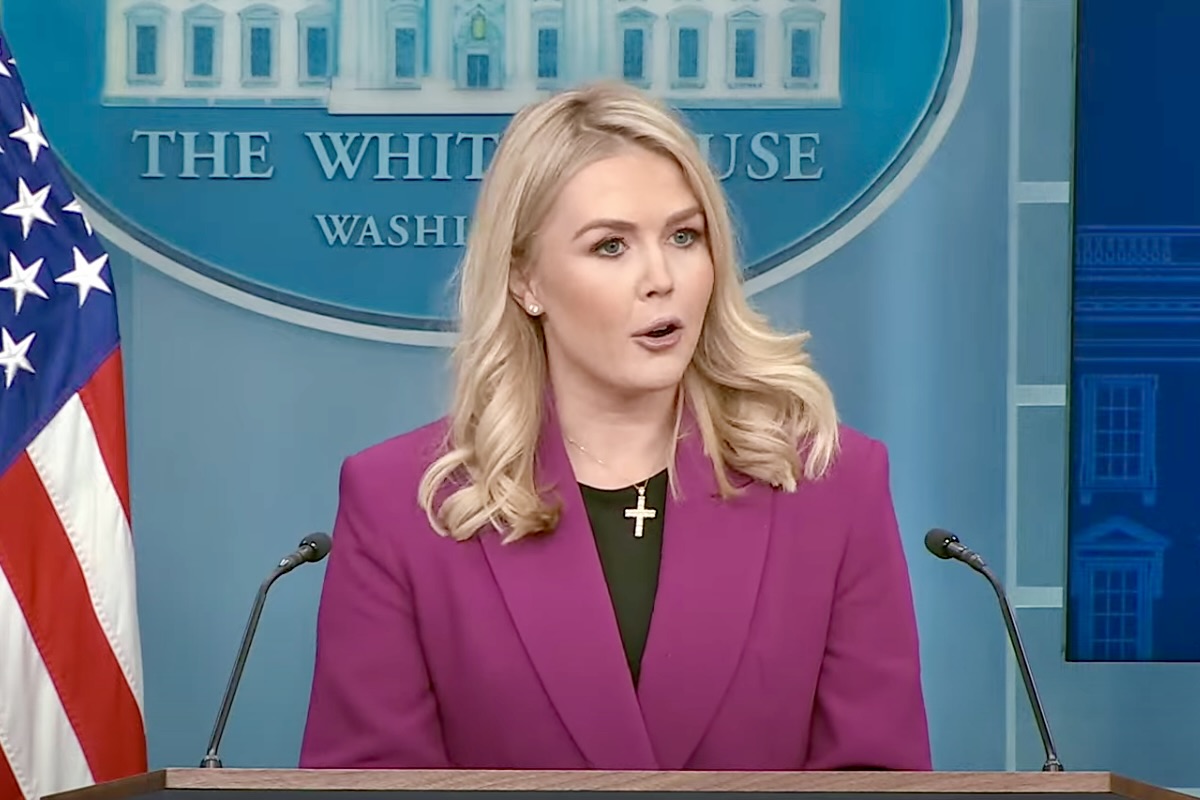White House Press Secretary Karoline Leavitt confirmed that President Donald Trump was consulted by Israeli officials on Monday regarding the recent military operations in Gaza. According to Leavitt, the Trump administration and the White House were approached by the Israelis to discuss the details and execution of their airstrikes in Gaza—a series of strikes described as the deadliest since the ceasefire reached on January 19. These strikes, carried out by Israel, resulted in significant casualties, with reports from Palestinian medics indicating that dozens of lives were lost in the process.
In a Fox News interview, Leavitt stated, “The Trump administration and the White House were consulted by the Israelis on their attacks in Gaza tonight.” This statement reinforces the administration’s willingness to engage directly with its allies during critical moments and to coordinate responses on issues related to national security, both for the United States and for its partners overseas.
During the same period, Israel executed a series of airstrikes that have been described as among the bloodiest in recent history targeting the Gaza Strip. The intensity of these operations has raised international concern, with Palestinian medics reporting numerous deaths on the ground. In response to these events, the White House underscored President Trump’s clear stance on terrorism. “As President Trump has made it clear – Hamas, the Houthis, Iran, all those who seek to terrorize not just Israel, but also the United States of America, will see a price to pay. All hell will break loose,” Leavitt said. Such remarks echo a consistent narrative from the administration, emphasizing that any actor or group that poses a threat to U.S. interests or to its allies will encounter significant opposition and repercussions.
Earlier, President Trump had issued a public warning that if Hamas did not release all hostages held in Gaza, a catastrophic response would be forthcoming. This warning, delivered in similarly forceful language, set the stage for the ensuing military actions and highlighted the high stakes involved in the region. The chain of events was precipitated by the October 7, 2023, attack by Palestinian Hamas militants against Israel, an assault that resulted in the tragic loss of 1,200 lives and the abduction of approximately 250 individuals, according to Israeli sources. This incident was the catalyst for the subsequent military campaign and remains one of the most significant escalations in the longstanding Israeli-Palestinian conflict.
In a related development, Washington claimed that dozens of members of the Houthi movement had been killed in a fresh round of airstrikes in Yemen on Saturday. According to Houthi sources, at least 53 individuals lost their lives during these strikes, although Reuters was not able to independently verify these figures. The concurrent military operations in Yemen and Gaza illustrate the complexity and interconnected nature of U.S. and allied responses to regional threats and highlight the administration’s broader approach to dealing with groups it deems as hostile or terroristic.
On the domestic front, President Trump’s second term is marked by a series of noteworthy developments in public opinion. A recent NBC News poll released on Sunday indicated that Trump’s approval rating had reached its highest level since the early days of his presidency. The survey revealed that more Americans believe the country is on the right track than at any time since 2004. However, despite the increased approval in several key areas, Trump has yet to gain a majority backing for his policies. The poll shows that 54% of respondents disapprove of his handling of the economy—a significant shift given that this is the first time a majority has expressed concern on this issue in NBC’s polling.
Interestingly, while many voters have expressed skepticism about the administration’s handling of economic issues, there remains substantial support for specific policy directions under Trump’s leadership. According to the poll, a notable 41% of Americans support his changes to trade policy, compared to 38% who oppose them. Additionally, 40% of poll respondents credited Trump’s policies with having a positive impact on inflation, while 30% believed they had a negative effect; 28% maintained that these policies were having no discernible impact at all. These nuanced views illustrate the polarized yet complex opinions held by the electorate—opinions that continue to shape political discourse in a deeply divided nation.
One particularly striking aspect of the poll is the stark contrast in approval ratings between Republicans and Democrats regarding President Trump. Among Republicans, his approval rating stands at an impressive 90%, while among Democrats, it languishes at just 4%. NBC News notes that this gap represents the widest disparity in presidential approval between a president’s own party and the opposition in the past 80 years. Overall, the poll indicates that 47% of the general electorate approves of Trump, while 51% disapprove—a margin that, while reflective of persistent division, marks an all-time high in recent polling. Notably, this 47% approval rating is comparable to levels reached in early 2020 before the onset of the COVID-19 pandemic, and again in October 2018.
RealClearPolitics’ latest aggregate polling data aligns closely with these findings, showing Trump with an average 48.2% approval rating. While his approval in the early months of his second term exceeds that of his first term at the same stage (which was 44%), it remains below the comparable stage of former President Joe Biden’s term, which averaged around 53%. These statistics underscore the continuing polarization in U.S. politics and point to fundamental disagreements not only over economic policy but also over the direction and effectiveness of current leadership.
In addition to these economic and political metrics, the administration has introduced several signature initiatives in its second term. Among these is the establishment of the Department of Government Efficiency (DOGE), a controversial cost-cutting measure aimed at reducing the federal deficit. Despite significant protests from government workers and sharp criticism from Democrats, DOGE has managed to garner support among a segment of the electorate, with 46% of registered voters expressing approval of the initiative compared to 40% against it. President Trump’s steadfast support for DOGE, alongside his backing of figures like Elon Musk, has become a hallmark of his administration’s efforts to streamline government operations.









